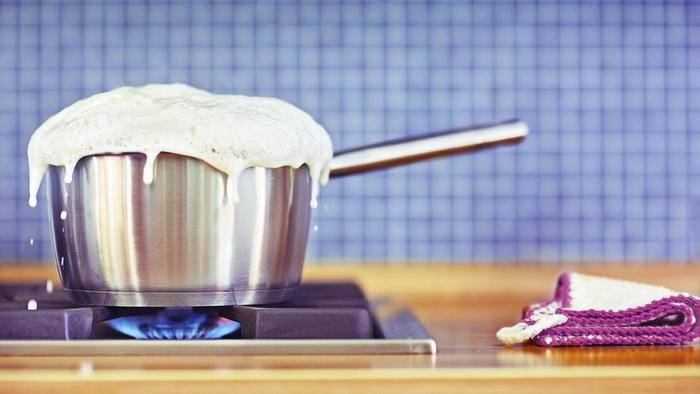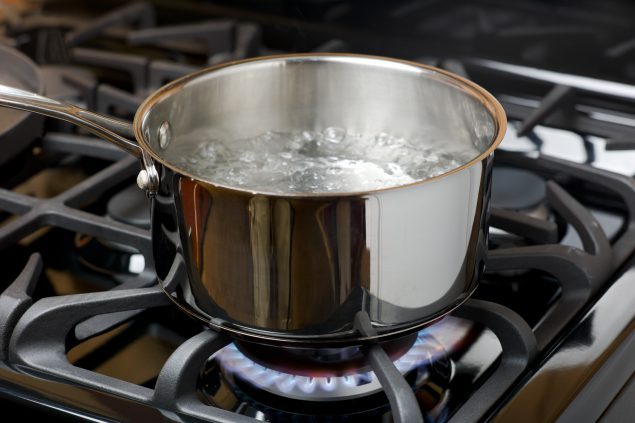Why does milk overflow when boiled but water does not?
We see different substances having different densities in our daily life. Similarly, some liquid contains various constituent particles in it. The density of normal water is slightly less than the density of the milk.
Here, we are going to discuss about why milk
overflows when boiled but water does not.
 |
| Credit |
Composition of Milk
Milk
contains water, fat, protein, carbohydrate, minerals, etc as its constituent
particles. The average composition of milk is given as: 87% of water, 4% of
fat, 3.4% of protein, 4.8% of lactose (carbohydrate), 0.8% of mineral and so
on.
Pure water
does not contain any such particles in it.
When we
heat the milk, the milk and its constituent particles (fat, protein, etc) get
separated and remain at the top as they are lighter than the milk. These
floating fats and proteins form a creamy film layer at the top.
The water
vapour gets trapped below this film. On increasing the temperature, more vapour
pressure is created between the film and milk. Finally, the vapour pressure
will be enough to the milk to overflow. After overflow of milk, second boiling
would not lead to overflow.
Once all
the vapour escape out, boiling will be regular like of water. In water, the
formation of such layer does not occur, so that, it does not overflow.
Why is breastfeeding done in small doses at a time?
Thanks for reading…
Please visit other articles.





राम्रो छ भाईराजा यु आर स्पेसल हरे कृष्ण 🌹🌹
ReplyDelete